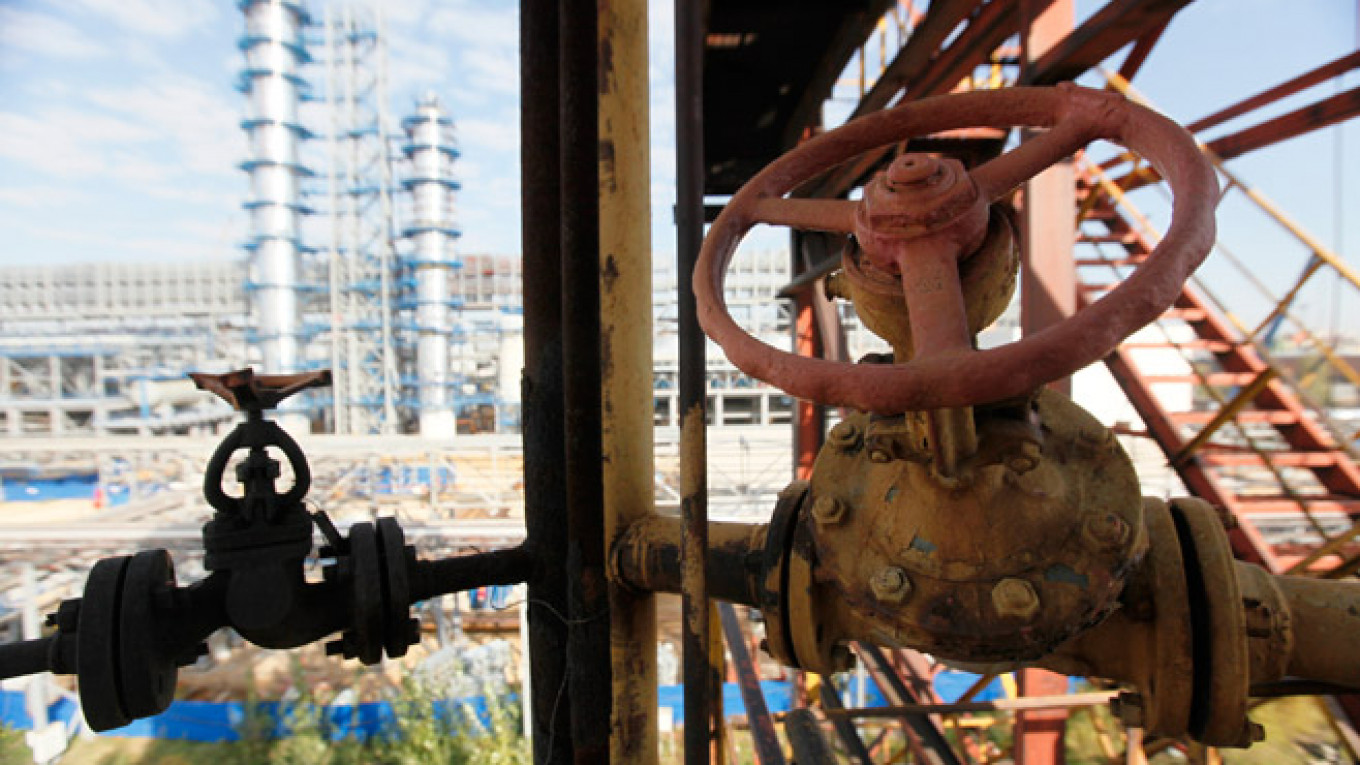If oil stays at its current price through this year, Russia's gross domestic product will likely shrink more than 6.5 percent, but Russian oil companies will continue to make a profit at even lower prices, analysts at the Gaidar Economic Forum said Thursday.? ?
Oil prices climbed to $48.62 per barrel for global benchmark Brent on Thursday, slightly up from the six-year low of $45 per barrel touched at the beginning of the week.
But even an average price of $50 per barrel of Urals — Russia's oil brand, which trades slightly below Brent — would mean that the country's gross domestic product this year will contract by 6.5 percent, inflation will soar to 13 percent, and net capital outflow will amount to $135 billion, according to an outlook by Higher School of Economic's Center for Development presented at the Gaidar Forum organized by the Russian Presidential Academy of National Economy and Public Administration.
Daria Isakova, chief economist at the Otkritie Capital investment group, said at the conference that she expected prices to return to $50 per barrel only by the end of the year and to $60 per barrel in 2016.
Even if oil drops to $30 a barrel, however, Russian oil producers will continue to break even because the export duty is designed to sweep most of the revenues above that level into state coffers, said Vladimir Drebentsov, vice president of British Petroleum Russia.
Low oil prices, however, could endanger new production and extraction of hard-to-reach reserves if companies are unable to find ways to cut costs amid Western sanctions over Moscow's role in the Ukraine crisis.
"Everyone will strive to decrease their costs, which will be more difficult to achieve now when Western sanctions have limited the access to advanced and efficient technology," Drebentsov said.
For some, oil's precipitous drop and the subsequent predictions of economic doom evoked memories of the collapse of the Soviet Union, triggered by a sharp oil price decline 30 years ago. ?
In 1985 oil prices fell by more than 65 percent after Saudi Arabia and other nations within the Organization of the Petroleum Exporting Countries (OPEC), of which Russia is not a member, increased production in an effort to bring the price down and gain greater market share. Six years later, the Soviet Union, as heavily dependent on oil revenues as Russia is today, ceased to exist.
"The question of an [oil] price war is in the air," Leonid Grigoriyev, chief aid to the head of the Analytical Center for the Russian Government, said when asked whether the current situation resembles one before the collapse of the Soviet Union.
But current situation is much different from that of 30 years ago, he said.
"The economies of Arab countries are much more dependent on oil prices than they were before. … Already at prices $30 to $40 per barrel, they will experience serious difficulties," Grigoriyev said.
The consequences for Russia's budget, though, are also serious. If prices of $50 per barrel hold, Russia will lose 3 trillion rubles ($46 billion) in revenues this year, Finance Ministry Anton Siluanov said at the forum yesterday. This is a fifth of the whole federal budget which is planned for this year at just over 15 trillion rubles ($230 billion).
Contact the author at a.panin@imedia.ru
A Message from The Moscow Times:
Dear readers,
We are facing unprecedented challenges. Russia's Prosecutor General's Office has designated The Moscow Times as an "undesirable" organization, criminalizing our work and putting our staff at risk of prosecution. This follows our earlier unjust labeling as a "foreign agent."
These actions are direct attempts to silence independent journalism in Russia. The authorities claim our work "discredits the decisions of the Russian leadership." We see things differently: we strive to provide accurate, unbiased reporting on Russia.
We, the journalists of The Moscow Times, refuse to be silenced. But to continue our work, we need your help.
Your support, no matter how small, makes a world of difference. If you can, please support us monthly starting from just $2. It's quick to set up, and every contribution makes a significant impact.
By supporting The Moscow Times, you're defending open, independent journalism in the face of repression. Thank you for standing with us.
Remind me later.


